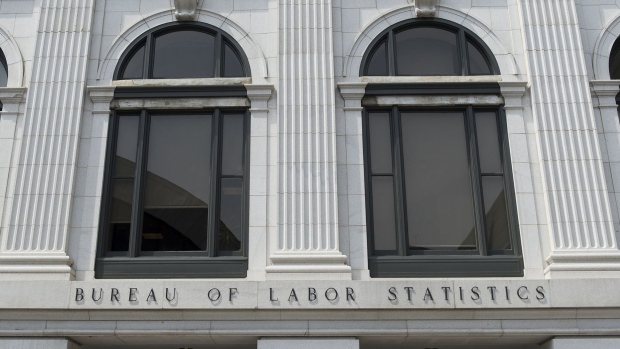Feb 13, 2024
The Daily Chase: U.S. inflation eases to 3.1%
, BNN Bloomberg

Here are five things you need to know this morning:
U.S. CPI comes in at 3.1 per cent: The U.S. inflation rate increased at a 3.1 per cent annual pace in January. That’s down from 3.4 per cent the month before but still higher than the consensus of 3 per cent that economists were hoping for — there was even some thought that the number could have dipped below 3 per cent, something it hasn’t done since the “transitory” days of early 2021. But that was not to be, as the cost of shelter continues to rise at a blistering pace, even as food inflation is slowing and energy prices move to the negative side of the ledger. At 3.1, the official U.S. inflation rate is now technically higher today than it was in June of 2023, even as it’s well down from the 40 year high above 9 per cent it hit in the summer of 2022. Worse still? The core inflation rate that strips out volatile items is even higher, at 3.9 per cent. That’s the same level it was at in December, which is also its highest level in eight months. Stubbornly high inflation is not what investors wanted to hear on Tuesday, as the number makes it more likely that the Fed will be willing to live with high lending rates for a while yet. All major U.S. stock futures headed lower on the news in premarket trading on Tuesday.
Shopify grows – but not enough: Such are the expectations in the technology sector of late that a company can post double-digit quarterly growth in most major financial metrics and still disappoint investors. Shares in the Ottawa-based e-commerce firm were off by as much as 10 per cent at one point in premarket trading after the technology giant posted quarterly results that mostly topped expectations. Merchandise volume rose 23 per cent to more than $75 billion, gross payments rose by almost a third to $45 billion and earnings per share came in at 34 cents — all above expectations. But after almost doubling since October, the stock is poised for its worst day in months. Bloomberg Intelligence analyst Anurag Rana says the company’s revelation that its free cash flow margin is in the single digits instead of the 13.6 per cent expected “stands out as the only negative indicator and may be behind the stop dropping … pre-market.”
Restaurant Brands beats expectations: The owner of Tim Hortons, Burger King, Popeye’s Chicken and other brands posted quarterly results premarket on Tuesday and the numbers beat expectations on just about every metric, sending the shares higher. Revenue came in at $1.82 billion in the fourth quarter, exceeding analyst expectations, as did the company’s earnings per share at 75 cents (higher than the 73 expected.) For many retailers and restaurants chains, the most important metric investors look for is same-store sales, which loosely speaking tracks the volume of rising of falling sales at any individual location while stripping out the impact of openings and closures, and on that metric, RBI’s performance was strong at 5.8 per cent across all of its brands. At Tim Hortons specifically same-store sales grew by more than 8 per cent which is “pretty impressive” according to Colin Stewart, founding shareholder of JC Clark Ltd., who was the featured guest on The Street on BNNBloomberg on Tuesday morning. “It shows the resilience of the business … to put through price increases … to offset inflationary pressures.”
More cuts at BlackBerry: The Canadian technology company is cutting more jobs, as part of the ongoing process split its cybersecurity business from its Internet Of Things arm. The company has previously announced 200 job cuts in the cybersecurity division, and says more are coming “which will likely save about $27 million annually, alongside $8 million from other non-headcount actions,” the company said in a release. The company has already shuttered six of its 36 office locations around the world as part of the cost-cutting plan. The company’s shares have lost about 32 per cent of their value this year.
REIT earnings: A slew of numbers from the Real Estate Investment Trust space are set to be released in the next day or so and investors will want to take a close look at the numbers. Morguard focuses on apartment dwellings, RioCan is a major Canadian retail landlord, Dream Industrial is a proxy for the warehousing space, while H&R does a little bit of everything. (Oh, and CT REIT owns the plurality of the land on which Canadian Tire stores, offices and distribution centres sit.) The REIT sector has been hit harder than perhaps any other by the current bout of high interest rates, so a rate cut would do more to help REIT prices than almost any operational performance, but the numbers set to come out on Tuesday will still tell us a lot about the state of affairs in big parts of Canada’s economy.